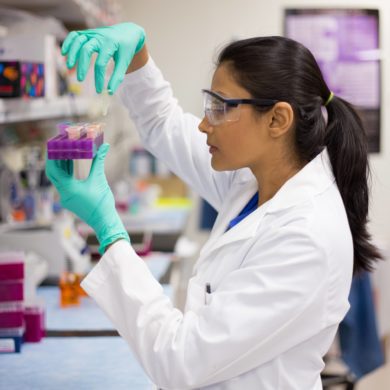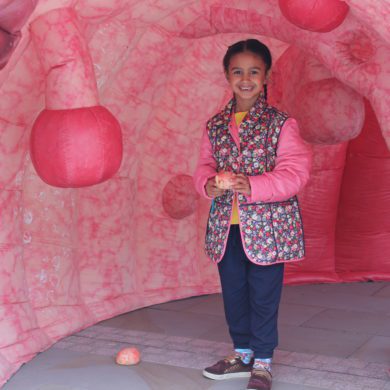Bowel Cancer
Prof. Colin Rees

Title: COLO-COHORT Colorectal Cancer Cohort Study
Guts UK has awarded £1,249,831 to Prof. Rees for his research into bowel cancer and bowel cancer screening.
113 people are diagnosed with colorectal (bowel) cancer in the UK every day, and 44 people die. Many colorectal cancers and deaths are potentially preventable.
We recognise many risk factors for the disease. Lifestyle – including aspects of diet, exercise and obesity – is very important, but changes in society affecting these factors mean that the burden of colorectal cancer is expected to rise in the future.
Most colorectal cancers develop from pre-cancerous fleshy growths in the bowel known as adenomas or polyps. We have effective screening tools (finding people before they develop symptoms) that can detect adenomas and early colorectal cancers.
However, although screening programmes are in place, they only consider age and not other factors such as lifestyle or family history. In the UK, almost 2 million people are referred to hospital every year because of bowel symptoms and undergo investigations (usually via an endoscope – a camera which is inserted into the bowel to examine it – the procedure is called a colonoscopy). The overwhelming majority turn out not to have any polyps or colorectal cancers. Endoscopy services are overstretched and struggling to cope, and we need to find better ways to determine who needs investigation.
COLO-COHORT aims to develop a “risk stratification tool” to help determine which patients are at highest risk of having polyps or cancer; this tool will be able to be used in the future to work out which patients need to be referred to endoscopy for investigation. We will also explore whether bacteria in the bowel (microbiome) are different in people with and without colorectal polyps/cancer; if so, this information would also be used to help better target endoscopy services to those who most need it.
COLO-COHORT will collect data from 10 000 patients. There will be 3 subgroups:
- 4000 individuals undergoing colonoscopy because of symptoms such as bleeding from the back passage or altered bowel habit. In these patients we will collect information directly from the patients (e.g. their family history, medical history, symptoms, lifestyle), stool samples to measure levels of blood in the stool, and results of blood tests. We will compare these with the results of their colonoscopy to find out which “factors” best predict who will have a polyp/cancer.
- 2000 patients undergoing colonoscopy in the NHS Bowel Cancer Screening Programme (where they have already had stools tested for blood). In these patients we will collect information (including diet) directly from the patients, stool samples to measure the bacteria lining the bowel (the microbiome) and blood test results. We will compare patterns of bacteria in people with and without polyps/cancer at colonoscopy and explore how diet influences this.
- In a further 4000 patients who do not wish to provide additional samples, we will collect information directly from the patients, the results of colonoscopy and seek permission to access recent blood results.
COLO-COHORT will help us develop a model to predict which patients are most likely to have polyps and/or cancer and therefore need to have a colonoscopy. This will benefit patients (those at low risk will be able to avoid an unnecessary colonoscopy) and the NHS.
COLO-COHORT has considerable potential to have major scientific and clinical impact. It will develop a risk prediction model to delineate, amongst those with symptoms or under surveillance, those patients at increased risk of colorectal neoplasia at colonoscopy. This would allow risk stratification to identify those who most require colonoscopy based upon phenotypic, symptom, biochemical and stool characteristics. Additionally, it will explore whether the microbiome profile differs between those with and without colorectal neoplasia; this information will significantly advance scientific understanding of the role of microbiome diversity in colorectal neoplasia and the adenoma-carcinoma sequence. Overall, the project findings have the potential to change clinical practice in terms of colonoscopy referral, yielding significant benefits for patients (as those who are low-risk may avoid unnecessary procedures) and the NHS (which is currently struggling to meet demand for endoscopy).
Prof Colin Rees
DISCOVER MORE:
Timings, institution & scientific title:
Institution: Newcastle University and South Tyneside NHS Trust
Title: COLO-COHORT Colorectal Cancer Cohort Study
Project Start Date: 21 January 2019
Completion Date: 20 January 2024
Grant amount: £1,249,831



